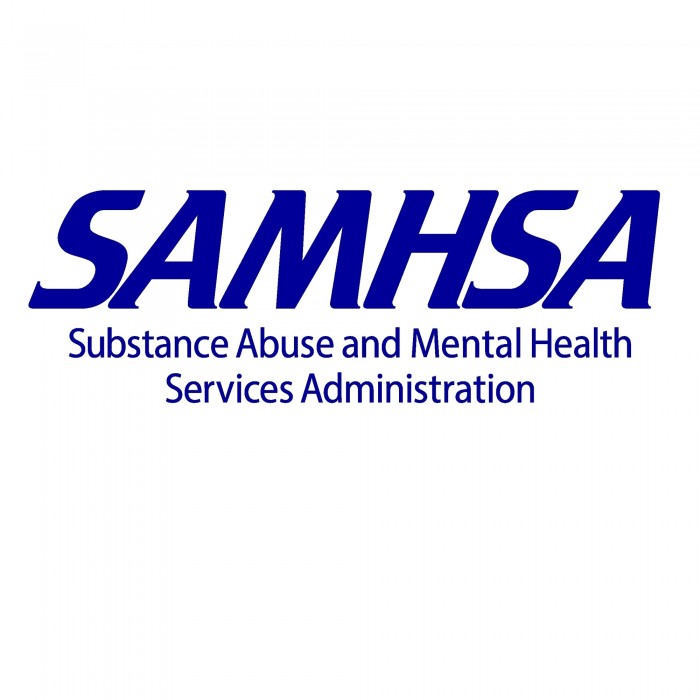Jack Phillips
Wolf Administration Announces Partnership with National Nonprofit, Shatterproof, to End SUD Stigma
SAMHSA Training and Technical Assistance Related to COVID-19
SAMHSA is committed to providing regular training and technical assistance (TTA) on matters related to the mental and substance use disorder fields as they deal with COVID-19. Their TTA programs are delivering great resources during this time. View the updated available TTA resources to assist with the current situation.
Best Practices in Navigating HIPAA and 42 CFR Part 2: A Client, Family and Organizational Perspective
On Thursday, July 30 at 2:00 pm (ET), SAMHSA will be hosting a webinar to assist providers with understanding HIPAA, the substance use disorder confidentiality regulations (42 CFR Part 2). As providers know, these regulations can be confusing for individuals and families who are new to mental health/substance use disorders (SUDs). Individuals and families have better success at recovery if their support systems can stay involved in ongoing care and engage in shared decision making as part of treatment for mental illnesses and substance use disorders (SUDs).
This webinar will explore what people need to know about HIPAA and 42 CFR Part 2 from a client, family, and organizational perspective. Our speaker will provide an easy to understand overview of the law. Learn practical tips to ensure that all parties who can and want to be involved in treatment are involved from the beginning. The webinar will finish with policy and practice guidelines for organizations and programs to successfully implement HIPAA and 42 CFR Part 2. Guidance will include protocol for data collection, data sharing strategies, and supporting clients and families.
Presenter:
- Gerald (Jud) E. DeLoss, JD – Chief Executive Officer/General Counsel, Illinois Association for Behavioral Health
Register Now
DDAP Announces ASAM Level 1 Outpatient Alignment Webinars
Between August 4 and August 6, DDAP will host four live web presentations regarding service descriptions and expectations for aligning the 1.0 Outpatient services. Below are two resources for each of these levels of care (LoC) that have been developed to assist with the next phase of service alignment, as well as an addendum document that details specific expectations for Pennsylvania providers not addressed in the other two documents:
- Level 1 Outpatient Services by Service Characteristics
- Level 1 Outpatient Services Self-Assessment Checklist
- Addendum: PA – Specific Expectations for Contractual Compliance with ASAM Alignment, Outpatient
These documents are also located on DDAP’s ASAM Transition page.
It is not necessary to register for the presentation, but you must use the Skype link or call-in details included on the included schedule specific to the particular date and time of the presentation you wish to join. Alignment to the ASAM Criteria, 2013 is required for all contracted providers; therefore, as a provider of outpatient services, it is strongly encouraged that you attend one of these presentations.
Governor Wolf’s Hazard Pay Program Requirements
According to the Hazard Pay Grant requirements, employers must pay the FICA and Medicare on those wages. It is a consideration for members, when applying for these funds.
FCC Designates ‘988’ As 3-Digit Number For National Suicide Prevention Hotline
The Federal Communications Commission has just adopted rules to establish 988 as the new, nationwide, 3-digit phone number for Americans in crisis to connect with suicide prevention and mental health crisis counselors. The rules require all phone service providers to direct all 988 calls to the existing National Suicide Prevention Lifeline by July 16, 2022. During the transition to 988, Americans who need help should continue to contact the National Suicide Prevention Lifeline by calling 800-273-8255 (800-273-TALK) and through online chats. Veterans and Service members may reach the Veterans Crisis Line by pressing 1 after dialing, chatting online at www.veteranscrisisline.net, or texting 838255.
Hazard Pay Grants Now Available for Front-Line Workers in Life-Sustaining Industries
FOR IMMEDIATE RELEASE
July 16, 2020
View Online
Harrisburg, PA – Today, Governor Tom Wolf announced the availability of $50 million in grant funding to help employers provide hazard pay to employees in life-sustaining occupations during the COVID-19 pandemic. Hazard pay is intended to keep front-line employees working in vital industry sectors across Pennsylvania.
“In the fight against COVID-19, our front-line workers have put themselves at risk every day in order to continue to provide life-sustaining services to their fellow Pennsylvanians, and this funding will increase their pay in recognition of those sacrifices,” said Gov. Wolf. “These grants will help businesses retain employees, ensure that Pennsylvanians keep working and avoid disruption of critical goods and services.”
Created through the federal Coronavirus Aid, Relief, and Economic Security (CARES) Act, this reimbursement-based grant is available to employers offering hazard pay during the eligible program period and will be administered by the Department of Community and Economic Development (DCED). Businesses may apply for grants up to a maximum of $3 million.
The following applicants are eligible to apply:
- Businesses
- Healthcare Non-profits
- Public Transportation Agencies
- Certified Economic Development Organizations (CEDO)
Eligible Pennsylvania-based industries include:
- Healthcare and Social Assistance
- Ambulatory Health Care Services
- Hospitals
- Nursing and Residential Care Facilities
- Transit and Ground Passenger Transportation
- Food Manufacturing
- Food Retail Facilities
- Security Services for eligible industries listed above and commercial industries that were not closed as a result of the Governor’s Business Closure Order
- Janitorial Services to Buildings and Dwellings
Grant funds may be used for hazard pay for direct, full-time and part-time employees earning less than $20/hour, excluding fringe benefits and overtime for the 10-week period from August 16, 2020, to October 24, 2020. Applicants may apply for up to $1,200 per eligible full-time equivalent (FTE) employee. Employers may apply for a grant to provide hazard pay for up to 500 eligible full-time equivalent employees per location.
Eligible applicants may apply for grants using the online DCED Electronic Single Application for Assistance located at www.esa.dced.state.pa.us from July 16, 2020, to July 31, 2020. Program inquiries may be directed to (717) 787-6245 or [email protected].
“An essential component of the spending plan we passed this spring was the use of available federal money to provide extra hazard pay for workers who are doing the most dangerous jobs,” said House Democratic Leader Frank Dermody (D- Allegheny, Westmoreland). “Today’s announcement shows we are serious about keeping that commitment and I urge all the employers who qualify for these grants to apply now.”
“Front-line workers in many workplaces have been praised during this pandemic, including thousands of transit workers who drive, clean and maintain our buses and trains,” said state Rep. Mike Carrol (D- Lackawanna, Luzerne), Democratic chairman of the House Transportation Committee. “They’ve earned more than just good words. They deserve better pay for the risky work that they are continuing to do every day.”
“This grant program will put $50 million in CARES Act dollars into the pockets of Pennsylvania’s lowest-paid front-line workers, who risked their families’ health and safety to keep us fed, care for our children and elderly, and help fellow front-line workers get to and from work,” said state Sen. Maria Collett (D- Bucks, Montgomery), Democratic chairwoman of the Senate Aging and Youth Committee. “I am especially glad to see that Governor Wolf and DCED considered my input and included actual risk and local prevalence of COVID as evaluation criteria.”
“Front-line essential workers are the backbone of our economy, and they have been working in dangerous, sometimes deadly, conditions. They are putting themselves and their families at risk from COVID-19 on a daily basis and their wages should reflect that risk,” said state Sen. Lindsey Williams (D-Allegheny), Democratic chairwoman of the Senate Community, Economic and Recreational Development Committee. “Many of these workers didn’t sign up for life-threatening work, so I’m pleased that the Hazard Pay Grant Program will assist employers in compensating them more fairly for the newfound dangers that they face.”
For the most up-to-date information on COVID-19, Pennsylvanians should follow https://www.pa.gov/guides/responding-to-covid-19/.
MEDIA CONTACTS: Lyndsay Kensinger, Governor’s Office, [email protected]
Casey Smith, DCED, [email protected]
# # #
US Access Board Virtual Celebration of the ADA on July 29

$10 Million in New Funding Available to Support Advancement of COVID-19 Treatments
FOR IMMEDIATE RELEASE
July 16, 2020
Harrisburg, PA – Today, Governor Tom Wolf announced the availability of $10 million in grant funding through the COVID-19 Vaccines, Treatments, and Therapies (CV-VTT) program to support the rapid advancement of vaccines, treatments, and therapies by qualified biotechnology entities in response to the COVID-19 pandemic.
This funding was appropriated from the Act 2A of 2020, known as the COVID-19 Emergency Supplement to the General Appropriation Act of 2019, to the Pennsylvania Department of Health (DOH), to be administered through a Notice of Subgrant by the Pennsylvania Department of Community and Economic Development’s (DCED) Office of Technology and Innovation.
“Our commonwealth is home to some of the most brilliant minds and institutions and has a history of being a leader in developing groundbreaking science and advancing new, life-sustaining technologies,” said Gov. Wolf. “As we continue to take mitigation efforts seriously, we want to support groups that can move Pennsylvania forward in the development of treatments that can halt the spread of COVID-19 and protect our families, friends, and communities for the long-term.”
This program is available to Pennsylvania-based entities that demonstrate both a financial need and a well-defined pathway to the accelerated commercialization of a new vaccine, treatment, or therapy in direct response to the fight against COVID-19.
The following applicants are eligible to apply:
- Colleges and universities
- For-profit companies
- Academic medical centers
- Non-profit research institutions
- Economic development organizations
Eligible applicants may apply for grants and learn more about the CV-VTT program here. The application deadline is Friday, July 24, 2020.
For the most up-to-date information on COVID-19, Pennsylvanians should follow https://www.pa.gov/guides/responding-to-covid-19/.
MEDIA CONTACTS:
Lyndsay Kensinger, Governor’s Office, [email protected]
Casey Smith, DCED, [email protected]
# # #













